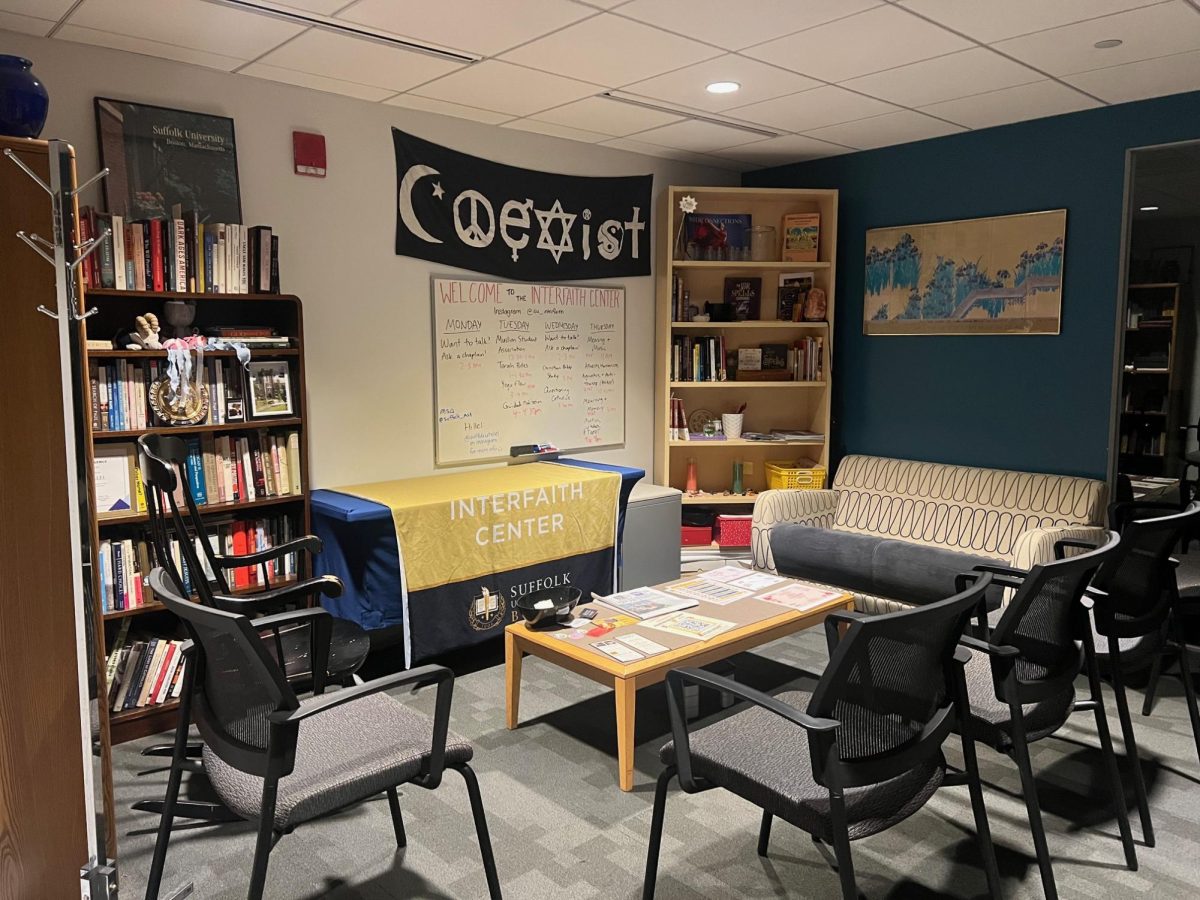Last Wednesday, Suffolk University students gathered in the Sawyer building to explore a question that humans have asked for centuries: What is the relationship between economics and the environment, and the environment and ourselves?
The discussion titled “What Nature Can Nurture” discussed the rift between economic growth and the environment as well as the psychological effects the environment has on humans. Psychology Department Associate Professor Lance Swenson, and Economics Department Professor Jonathon Haughton and Assistant Professor Christos Makriyannis led the discussion during one of Haughton’s sections of Environmental Economics.
Makriyannis opened up the presentation by discussing how often humans spend money to build man-made structures over natural landscapes to do jobs when the natural structures would have done the same job.
“We pay a lot of money to destroy wetlands, and we then replace them with seawalls,” said Makriyannis. “But wetlands do a lot of that work for us.”
Makriyannis went on to note that a healthy environment nurtures human health, which helps promote positive economic activity. He also said that it is a huge problem that economists and environmentalists today have been treating economic progress and environmental health as having an inevitable inverse relationship with one another.
In reality, Makriyannis explained that environmental health may actually benefit economic progress.
“I think most people will agree is that economic decision making doesn’t quite weigh this natural capital property,” said Makriyannis. “That’s why we have this tension between economic progress, economic activity and the well-being of the natural environment. Most of us view these things as competing goals.”
Makriyannis was raised in Cyprus, a small island nation just off the coast of Turkey and the Middle East. He discussed how growing up, nature helped the Cypriot economy and the tourism industry.
Makriyannis said that because of this booming economy in Cyprus, he saw a rise in the construction of hotels which would negatively affect the nature that tourists came to see, pointing out a paradox.
“Later in retrospect you see ‘well, wait a minute,’ these luxury hotels that we’ve built and substituted much of our natural habitat with, tourists have those in their own countries,” said Makriyannis. “Tourists don’t come to Cyprus to stay in a luxury hotel, they come to Cyprus to experience nature. “
Swenson then took the floor to discuss how urban settings impact humans from a psychological perspective. He said individuals who live closer to Boston Common are less stressed than individuals who live further away in the city. Swenson talked about how cities have more artificial light and that can affect people negatively by throwing off their biological clocks.
“The consequence of that in biology [is] our bodies are more physically stressed whether we are aware of it or not,” said Swenson.
“Because we are more active for a longer period of time, our sleep cycles are thrown off.”
Swenson then went on to why people are drawn to cities or rural areas based on personal preference by what he called the three mechanisms of gene-environment correlation: passive, evocative and active.
Passive is when one’s chosen environment is independent of their psychological traits. Evocative is the shaping of one’s traits based on their environment’s reaction and active mechanisms happen when one chooses their environment based on their traits or “biological predispositions,” according to Swenson.
“It refers to where you live, it refers to what you do, it refers to kind of careers you have, things of that nature,” said Swenson. “So in that way the environment can be shaped by your genetic [or biological] predispositions in terms of what kind of environments you actively select.”
To exemplify the evocative mechanism for the audience, Swenson said that young children who were talented were reinforced of their traits by their environment (parents and teachers) to continue to pursue music.
“Often times, that musical talent is recognized by others in the environment,” said Swenson. “And when recognized, what the environment does is give further opportunities to engage in that behavior.”
These mechanisms of choosing environments are a reason why the idea of suburban living appeals to many, according to Swenson.
“I think there’s no one-size-fits-all,” said Swenson.



















